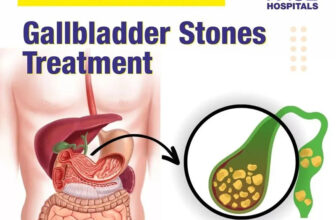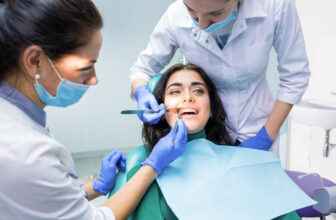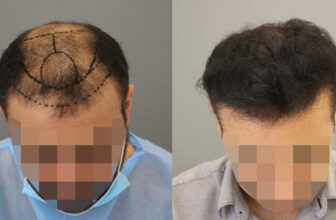
Numerous individuals view rhinoplasty surgery as a successful means of balancing facial features and improving the nose’s proportions to the rest of the face. While maintaining a natural appearance, it can have a significant impact on your looks and self-esteem. Consult a qualified and experienced surgeon before rhinoplasty.
During your consultation for a nose job, you should go over the advantages and disadvantages of the process as well as receive aftercare guidelines, which can speed up the recovery phase. Use these practical recuperation suggestions to help you get there sooner.
- Prevent the Swelling
An inflatable cushion or cold compress to keep the nasal passage open and reduce pain and swelling after rhinoplasty may be beneficial. It will restrict blood flow to the injured area, lowering inflammation and hastening healing.
- Keep away from anti-inflammatory medications while your rhinoplasty heals.
Anti-inflammatory medications can increase blood circulation and nasal swelling, which could cause bruises or slow recovery. Before taking anti-inflammatories while recovering, we advise you to talk to your doctor about their use.
- Get sufficient rest
Recovery from the procedure depends on getting enough rest. Resting enough is important since your body needs time to rebuild its strength. Your body needs sleep to repair damaged tissue, and when you don’t get enough sleep, your body can’t do these repairs correctly.
- Reduce your exposure to the sun.
After having a nose job, you are more vulnerable to UV damage, which can cause swelling and cause scarring. Wear hats with wide brims, apply sunscreen with a high SPF, and stay out of the sun as much as you can. By taking these safety measures, you may safeguard your skin and guarantee a more aesthetically pleasant healing process.
- Avoid Smoking
It’s recommended that you abstain from smoking for a minimum of four months, or until your doctor gives the all-clear to start again. Nicotine can constrict blood vessels and prevent some nutrients from getting to the wound, which could slow down the healing process. Smoking can also cause a considerable delay in the healing process by raising the possibility of problems.
- You should go for walks
You can minimise fluid buildup in your nose and promote fluid circulation throughout your body by walking. Walking also helps to gently boost blood flow throughout your body. You may also give yourself more fresh air by breathing more deeply and beating your heart rate a little faster. This helps to lower your stress levels and keep congestion from building up in your sinus cavities.
- Maintain a healthy diet
Following nose surgery, eating a balanced diet provides your body with the nutrition it needs to heal more rapidly. These essential elements are found in nuts, meats, dairy products, eggs, beans, and other foods strong in protein.
Additionally, make sure you are getting adequate vitamins A and C in your diet. Retinol, another name for vitamin A, is a crucial component of healthy vision, especially at night. It combats illness and strengthens immunity. Oranges, strawberries, tomatoes, peppers, and bell peppers are a few foods high in vitamin C.
- Don’t Blow Your Nose Out
You may experience some congestion for a few weeks following nose job surgery, or possibly for a month or two. The cause of this sensation is enlarged nasal tissue. If you start having problems breathing through your nose during such times, don’t try to blow your nose; instead, call the doctor right away. To help keep your sinuses wet until they recover, he can give you a saline nasal rinse. In six weeks, you should be able to breathe normally once more.
Sneezing should be done by blowing out air through your mouth as opposed to your nasal passages, if possible. Although it could be disgusting, it’s preferable to causing harm to your nasal passage which in turn can delay the recovery.
- Keep your head elevated
When you sleep or rest, especially in the initial days following surgery, raise your head. This facilitates faster healing and lessens oedema.
- Stay mindful about wearing glasses.
For at least a month following surgery, avoid wearing sunglasses or glasses that rest on the bridge of your nose. Glass pressure can change your outcomes and impact the healing process.
- Avoid spicy food
Any irritation in your nose or nasal passages during the first few days following surgery can result in bleeding, infection, or swelling after the procedure. You will therefore be advised to stay away from salty and spicy meals at this time. In the early phases of healing, spices like chilli powder can constrict blood vessels, irritate the sinuses, and promote swelling and bruises. Avoiding spicy foods will quicken the healing period.
- Utilise humidifiers
Using a humidifier to keep the air moist can help keep your nasal passages from drying up, improving breathing comfort and lowering inflammation.
- Attend follow-up appointments
See your surgeon for follow-up sessions regularly. They enable your surgeon to monitor your progress and quickly resolve any issues.
Above everything, cultivate patience. It will take time for you to heal and achieve the desired results from your rhinoplasty. Although the tips won’t shorten the recovery period from a year to a week, they will help you heal more quickly and have a better experience after surgery.







